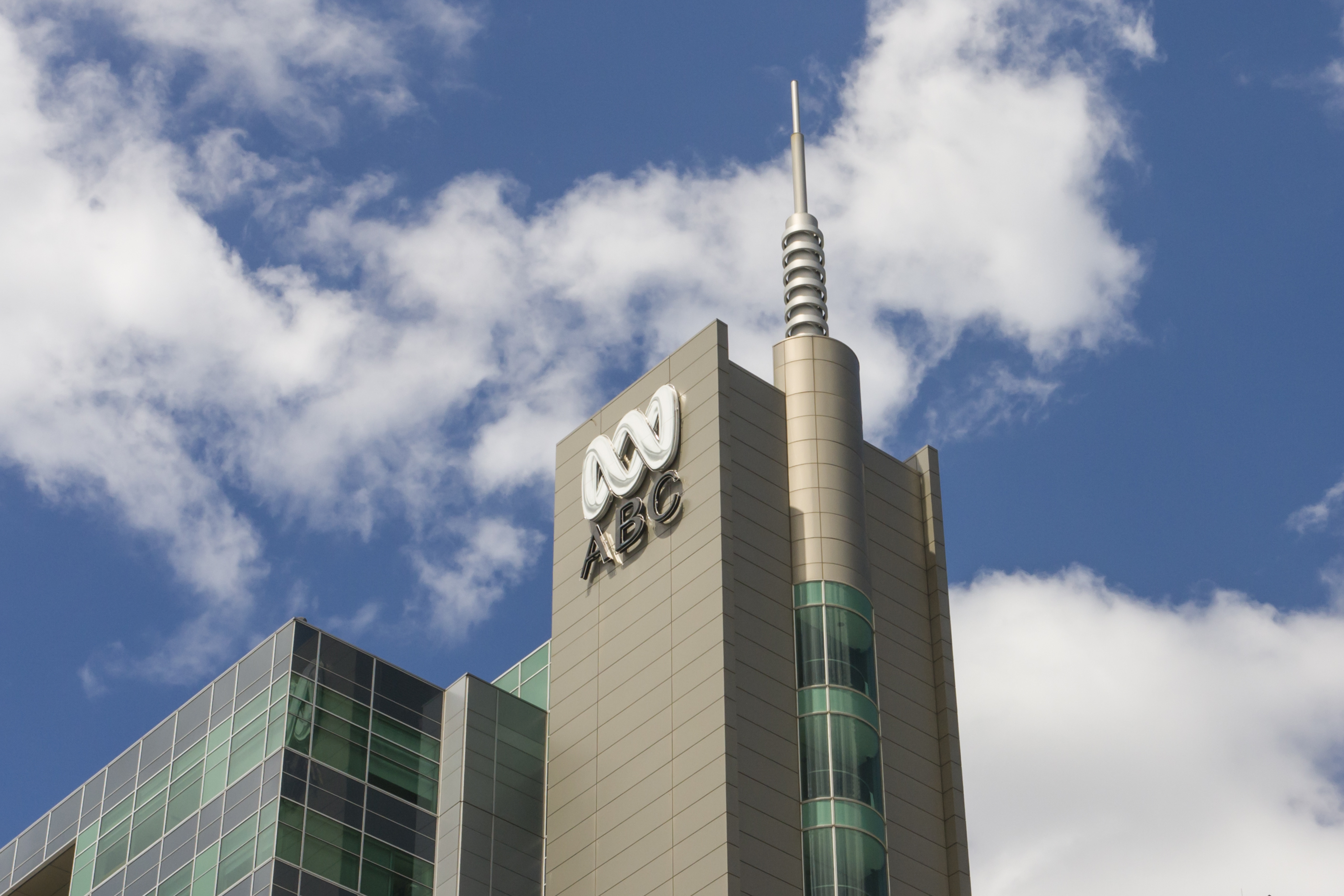Australia’s largest public broadcaster has announced major changes and cuts to programming and staff as it launches its Five-Year Plan.
Updated: 26 June 2020
The widely anticipated ABC Five-Year Plan 2020-2025 reveals a cost-cutting strategy to address the $40m per annum budget shortfall by the Morrison government and, more recently, financial pressures from the COVID-19 pandemic.
At least 250 jobs are likely to be cut across all divisions, with the News division being the hardest hit with approximately 70 job cuts, as detailed in an email by ABC News Director, Gaven Morris.
Proposals include axing the public broadcaster’s flagship 7:45am bulletin on Local Radio as well as reducing the size of its regional and local executive teams. Independent production will also receive a $5 million funding cut, while prioritising investment in Children’s and drama programming.
Read more: ABC to cut programming, services and jobs
Other measures include reducing the ABC Life team – a lifestyle site that targets younger audiences – by half and rebranding it into ABC Local, with a broader remit.
Part of the announced plans will include relocating 75% of content-makers outside of ABC’s Ultimo centre in Sydney by 2025. This could create around $4m a year in savings – a move that has been welcomed by the government, according to ABC News. Use of studio space will also be under review, as it considers leasing its Sydney headquarters to re-generate income for additional services.
Up to 250 ABC jobs to go, programs axed, to deal with budget shortfall https://t.co/Tvn8v3LTO1
— ABC News (@abcnews) June 24, 2020
"We anticipate we will farewell as many as 250 people through this process, valued colleagues who have made tremendous contributions to the ABC and to our audiences.”
David Anderson, Managing Director, ABC
Yet according to the plans, the relocation is also an important step in realising and improving the organisation’s regional commitments and ensuring greater engagement with local communities.
The plan also emphasises the ABC’s commitment to “connecting and uniting all Australians” by accelerating its transformation into the nation’s most trusted and valued digital content provider, with “personalised digital experiences”. Central to this connective role, is providing for the country’s increasingly diverse public, and telling the stories of “diverse Australia”.
In his briefing to staff, Managing Director, David Anderson, admitted that this “is a difficult time for us, as it is for the broader economy and community as we all struggle with the events of this year,” and focused on how the strategy would create a pathway for future digital services and ensure that the ABC would continue to remain relevant for all Australians.
Speaking on the 26 June, ABC Chair Ita Buttrose called for a renewal of indexation and emphasised the impact an underfunded public broadcaster could have. In a press release titled What would Australia look like without the ABC?,
“The ABC Five-Year Plan 2020-2025 will guide us as we continue to transform from a traditional broadcaster to the nation’s most trusted and valued digital content provider across all platforms… This strategy lays out the next steps in the ABC’s proud 88-year history, ensuring that now and into the future we remain the home of Australian stories, trusted information and conversations that connect us all.”
But he went on to say that, “We anticipate we will farewell as many as 250 people through this process, valued colleagues who have made tremendous contributions to the ABC and to our audiences.”
Responding to the announcement on the 26 June, ABC Chair, Ita Buttrose, called for a renewal of indexation and emphasised the impact an underfunded and compromised public broadcaster could have, highlighting the ABC’s intrinsic role in providing for diverse audiences, covering crises and preserving Australia’s democratic culture. In a press release titled What would Australia look like without the ABC?, she said:
“These funding cuts are unsustainable if we are to provide the media services that Australians expect of us. Indexation must be renewed.
“The ABC is essential in generating and preserving Australia’s democratic culture. An independent, well-funded national broadcaster allows Australians, wherever they live, to connect. It is how we share our identity, how we tell our stories, how we listen to each other, how we ask for help and how we give it.”
"The ABC is essential in generating and preserving Australia’s democratic culture."
Ita Buttrose, ABC Chair
“Death by a thousand cuts”
The proposals have received strong reactions from trade unions, ABC staff and media advocacy organisations. Public Media Alliance CEO, Sally-Ann Wilson reiterated the importance of well-funded public media to democratic society:
“The ABC, including ABC Radio, is recognised worldwide for its incredible response to both the bushfires of 2019 and then shortly after to the COVID-19 pandemic. Australians also appreciate that incredible achievement. But the reality is that ABC has to cut AUS$84 million over the next three years. It’s hard for any organisation to make cuts when there is literally no more fat to cut. The 7.45 bulletin is iconic but all change is difficult and these cuts will impact all areas of what the ABC does. I have no doubt that they are all being made in a considered way and with a heavy heart”.
“For PMA this is not a new story, we witness cuts to funding as part of more general pressures on public media globally, but it seems especially hard when the ABC teams have achieved so much in recent months. The truth of the story is that public media is an essential part of any democratic society but to be effective it needs strong and secure funding and support from both the public and politicians”.
The Community and Public Sector Union (CSPU) called it a “death by a thousand cuts” as it urged the Morrison government to cease its $84 million funding cut to ABC.
Emphasising the value that the ABC has provided for the Australian public, CSPU stated: “The ABC has delivered through all major crises of this year. The ABC has provided in some cases lifesaving information throughout the droughts, fires and now a health pandemic. It is clear that Australia needs a strong ABC now more than ever.”
The Media, Entertainment and Arts Alliance (MEAA) also issued a statement in solidarity for ABC journalists and editorial staff:
“The national broadcaster has already been hit hard. These cuts, coming as they do in the midst of a pandemic when the public has an increased appetite for news and information, is short sighted in the extreme.
With the crisis in regional media, it is especially important that the ABC’s reach in communities outside metropolitan areas is maintained.”
Meanwhile, ABC Life Editor, Bhakthi Puvanenthiran, tweeted that the ABC Life rebrand is “devastating news and the details are unclear right now, but what I know for sure is I’m really proud of what we’ve built, telling diverse stories the ABC has never told before.”
Breaking: We are losing up to half the ABC Life team as we rebrand as ABC Local.
It’s devastating news and the details are unclear right now, but what I know for sure is I’m really proud of what we’ve built, telling diverse stories the ABC has never told before.— Bhakthi (@bhakthi) June 24, 2020
The ABC remains one of Australia’s most trusted brands, and as a public broadcaster its service and values have been integral to informing and guiding Australian’s through numerous crises, such as its life-saving role in last summer’s bushfires and the COVID-19 pandemic.
But while the organisation’s plans double down on its commitment to public media values and “connecting and uniting” all Australians in the digital age, it does so while facing a barrage of cuts that could diminish its ability to effectively respond and report, hold power to account and produce quality, trusted content – all at a time when it is needed more than ever.
More information
Header Image: People entering and leaving the Australian Broadcasting Corporation (ABC) Centre in Ultimo. Credit: kokkai/iStock
"The truth of the story is that public media is an essential part of any democratic society but to be effective it needs strong and secure funding and support from both the public and politicians"
Sally-Ann Wilson, CEO, Public Media Alliance
Related Posts
1st April 2020
ABC expands education schedule to support students at home during COVID-19 crisis
The ABC is launching an expanded…



